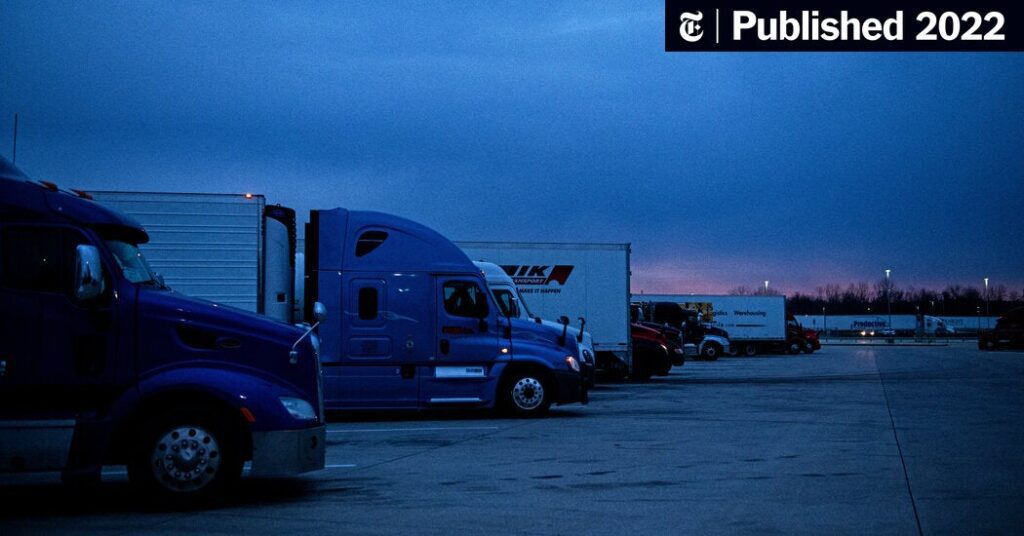The Journey of Jon Knope in Trucking
A few years back, Jon Knope found himself in a rainy parking lot in Cartersville, Georgia, surrounded by broken soda bottles as he honed his skills for parking a Class 8 combination tractor-trailer. In his early twenties, feeling somewhat adrift, he sought a more stable job than driving for ride-share apps in his mother’s station wagon.
Jon enjoyed driving, leading him to trucking school. This career offered significantly higher earnings, as he could work hours beyond what Uber or Lyft permitted. Over the ensuing years, he spent over 900 nights on the road, covering at least 350,000 miles. Despite being physically alone in his truck, watching sunrises and sunsets, he never truly experienced solitude. Like many truckers, he faced constraints from low wages, grueling hours, and extensive monitoring.
Surveillance in Long-Haul Trucking
Today, long-haul truckers are among the most closely monitored workers globally. Cameras and sensors are installed in their trucks, tracking the road, brakes, and even the driver’s eye movements. Jon’s experience with a malfunctioning cabin heater illustrates this; he endured freezing nights across northern Ohio and New York because an automated system prevented his engine from running overnight. When he sought to override the system, the company informed him it was impossible.
The Struggles of Daily Life on the Road
Consider the frustration of returning home after a long desk job only to find your apartment’s heat not working. Now, picture that apartment as your office, where most meals consist of microwaveable burritos or fast food. Imagine needing to press a pedal regularly, having no option to stand, no face-to-face interaction with coworkers, and resorting to a plastic jug when a bathroom isn’t available—all while being monitored by someone miles away.
The Dangers of Trucking
Trucking carries significant dangers, with large trucks accounting for 10% of fatal crashes in the U.S. in 2019. Jon often referred to tractor-trailers as “40 tons of death.” A single miscalculation could threaten other drivers’ lives, particularly those in smaller vehicles. Much of the surveillance is justified in the name of safety, a priority that truckers universally agree on.
Fatigue and Low Wages
Experts suggest that truckers’ fatigue—which can lead to dangerous situations, like falling asleep at the wheel—is a direct consequence of low wages that compel them to spend excessive time driving. While automation and AI technologies are often perceived as threats to employment, they are already integrated into trucking to manage deteriorating working conditions rather than replace drivers.
Conclusion
Jon Knope’s story emphasizes the complexities of long-haul trucking, where the promise of freedom is often overshadowed by financial and operational struggles. As automation becomes more prevalent, the industry’s challenge remains to address the underlying issues that affect drivers’ safety and well-being.


